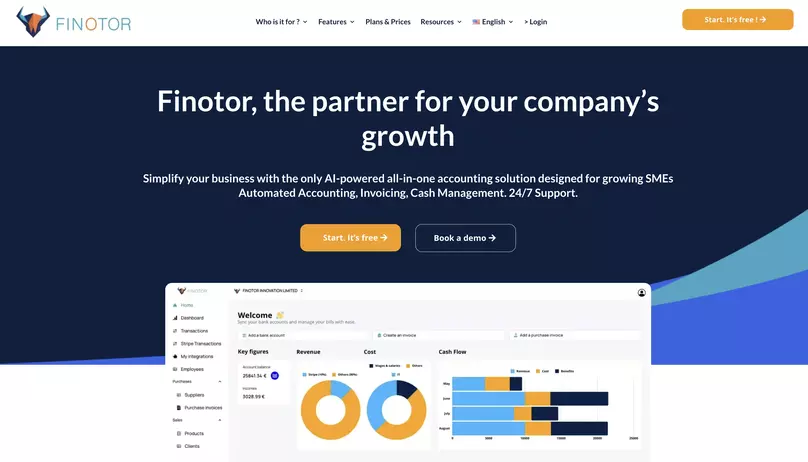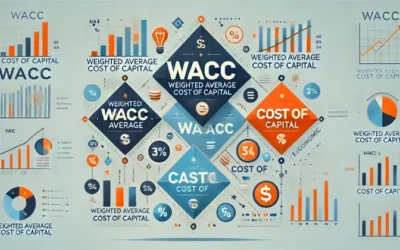Contents
Finding the Right Fit for Your Business
In the quest for operational excellence, discerning the perfect virtual finance director for your enterprise is a pivotal step. With the myriad of financial management solutions available, it is essential to conduct a thorough assessment to ensure that the chosen service aligns with your company’s specific needs. This initial phase involves a careful examination of your company’s financial landscape, understanding the multifaceted role of a virtual finance director, and setting definitive goals for your financial oversight.
Assessing Your Company’s Financial Needs
The foundation of any successful financial management strategy begins with a comprehensive assessment of your current financial processes and requirements. It’s important to evaluate the complexity of your transactions, the volume of data to be processed, and the level of financial oversight needed. A virtual finance director, through a platform like Finotor, can offer a bespoke solution tailored to these needs. The all-in-one nature of such a platform ensures that all financial, accounting, and banking operations are not only centralized but optimized for efficiency and accuracy.
Understanding the Role of a Virtual Finance Director
The modern virtual finance director is more than just an accountant; they are strategic partners equipped with the expertise to drive business growth. An effective virtual finance director leverages technology to provide insight, foresight, and oversight over your financial activities. For further reading on the value of being a virtual finance director, consider this insightful article on LinkedIn. By understanding this role, you can harness the full potential of virtual financial leadership to streamline processes and drive strategic decision-making.
Setting Clear Objectives for Financial Management
To navigate the complexities of financial management, setting clear, achievable objectives is essential. Objectives may range from improving cash flow management to achieving better financial forecasting accuracy. It’s important that these goals are SMART: Specific, Measurable, Achievable, Relevant, and Time-bound. With a clear set of objectives, you can more effectively evaluate the performance of your virtual finance director and ensure that your financial operations are aligned with your company’s broader strategic goals. Additionally, resources like those found at Valencia College can provide further guidance on financial management best practices.
In conclusion, finding the right virtual finance director for your business is a process that requires attention to detail and strategic planning. By assessing your financial needs, understanding the role of a virtual finance director, and setting clear objectives, you can make an informed decision that will benefit your company’s financial health in the long term. The next sections will delve into the benefits of virtual financial leadership and how integrating technology with financial expertise can elevate your company’s performance.
Try Finotor with a FREE account
No commitment, no time limit, no credit card required
> Click Here
Exploring the Benefits of Virtual Financial Leadership
Cost-Effectiveness and Scalability
When businesses consider a Virtual Finance Director (VFD), cost-effectiveness is often at the forefront of their decision-making process. Unlike traditional in-house financial directors, a VFD can offer significant savings on salary, benefits, and overhead costs. Instead of a fixed salary, companies can utilize VFD services on a more flexible basis, scaling up or down according to their financial activity and budget. This scalability ensures that businesses only pay for the expertise they need, when they need it, making financial management both affordable and adaptable to growth or seasonal changes.
24/7 Availability and Support
One of the most compelling advantages of a VFD is the promise of round-the-clock support. Finotor’s commitment to a 24/7 customer service model means that businesses can access expert financial advice and assistance whenever required. This level of availability is particularly beneficial for companies operating across different time zones or those needing to respond swiftly to financial matters that may arise outside of regular business hours. The constant support ensures that financial decisions can be made promptly and with the full backing of professional guidance.
Expertise in AI and Machine Learning for Finance
Embracing the future of finance, a VFD brings with it specialized knowledge in the application of artificial intelligence (AI) and machine learning. These technologies are transforming financial management, enabling predictive analytics, risk assessment, and enhanced decision-making. By leveraging AI, companies can gain deeper insights into their financial health, recognize patterns, and forecast future trends with greater accuracy. Financial Crimes Enforcement Network (FinCEN) Director Jennifer Shasky Calvery has pointed to the potential of these technologies in combating financial crime, further highlighting their importance. With Finotor’s AI-driven tools, businesses can stay ahead of the curve in financial strategy and compliance.
Integrating Technology with Financial Expertise
Automating Accounting with Advanced Software
Automation is key in today’s fast-paced business environment, and integrating advanced accounting software is a cornerstone of Finotor’s approach to financial management. By automating routine tasks such as invoicing, payroll, and bookkeeping, businesses can free up valuable time and resources. This shift allows companies to focus on strategic decisions and growth initiatives, rather than getting bogged down by day-to-day financial administration. Furthermore, automation reduces the likelihood of human error, ensuring a higher level of accuracy in financial records.

Seamless Bank and Payment Platform Integrations
Financial management is often hindered by disconnected systems and platforms. Finotor addresses this challenge by facilitating seamless integrations with bank systems and payment platforms like Stripe and WooCommerce. This interconnectedness ensures that transactions are synchronized across all platforms, simplifying bank reconciliations and providing a unified view of financial data. Such integrations not only save time but also provide a more comprehensive and real-time understanding of a company’s financial position.
Data Analysis and Financial Decision-Making
At the heart of modern financial management is data-driven decision-making. By harnessing the power of big data analysis, Finotor equips businesses with the ability to make informed financial decisions. Detailed reports and analytics offer insights into spending patterns, revenue streams, and potential cost savings. This empowers companies to optimize their financial strategies and ultimately drive profitability. Moreover, with the help of a Virtual Finance Director, businesses can interpret this data within the context of broader market trends and their specific industry challenges.
Identifying Qualified Virtual Finance Director Candidates
Finding the right VFD begins with identifying candidates who possess the necessary qualifications and experience to manage your company’s financial operations effectively. Look for professionals who have a track record of success in financial management, preferably with expertise in your industry. It’s crucial to consider candidates who are not only technically proficient but also align with your company’s strategic goals.
Evaluating Technical and Financial Acumen
The selection of a VFD should involve a thorough evaluation of their technical skills and financial acumen. This includes assessing their proficiency in utilizing modern financial software, their understanding of financial regulations, and their ability to apply AI and machine learning in a financial context. A candidate’s experience with financial analysis and reporting is also essential, as these skills are critical for strategic financial planning and decision-making.
Ensuring Alignment with Your Company’s Vision and Culture
While technical expertise is paramount, it’s equally important to find a VFD who shares your company’s vision and culture. The right VFD should be a strategic partner, one who understands and supports your long-term business objectives. They should be able to seamlessly integrate with your team, fostering a collaborative environment that encourages growth and innovation. Careful consideration of these factors will help ensure a successful partnership and a strong financial future for your business.
FAQ: Finding Your Ideal Virtual Finance Director
1. What is a Virtual Finance Director (VFD)?
A Virtual Finance Director (VFD) is an outsourced financial expert who provides strategic financial guidance to companies on a part-time or remote basis. This role is ideal for businesses that need high-level financial management but don’t have the resources for a full-time CFO.
2. Why should a company hire a Virtual Finance Director?
Hiring a VFD allows businesses to access expert financial guidance without the cost of a full-time hire. A VFD helps with strategic planning, financial analysis, cash flow management, budgeting, and forecasting, ensuring that the business maintains financial health and growth.
3. How does a Virtual Finance Director differ from a CFO?
A VFD offers similar services to a traditional CFO but typically works on a part-time or flexible basis. This makes a VFD more cost-effective for small and medium-sized enterprises (SMEs) that may not require a full-time financial executive but still need high-level financial advice.
4. What are the key responsibilities of a Virtual Finance Director?
A VFD is responsible for:
•Financial strategy development
•Budgeting and forecasting
•Cash flow management
•Financial risk analysis
•Reporting and compliance
•Advising on investments and growth opportunities
5. What should I look for in a Virtual Finance Director?
When hiring a VFD, look for someone with:
•Strong financial expertise and relevant qualifications
•Experience in your industry
•A strategic mindset for business growth
•Excellent communication skills
•A proven track record of improving financial performance in similar businesses
6. How can a Virtual Finance Director benefit small businesses?
For small businesses, a VFD provides access to expert financial management at a fraction of the cost of a full-time CFO. They can help optimize cash flow, improve profitability, manage debt, and support long-term strategic growth.
7. What industries benefit most from a Virtual Finance Director?
Any industry can benefit from a VFD, but industries with complex financial needs, such as tech startups, e-commerce, manufacturing, and professional services, often see the most value. These industries typically require dynamic financial strategies to adapt to fast-changing markets.
8. How can I find the right Virtual Finance Director for my business?
To find the right VFD, start by assessing your business’s specific financial needs. Research candidates or agencies that specialize in your industry, review their experience and qualifications, and interview them to ensure they align with your business goals and culture.
9. How does Finotor help in finding an ideal Virtual Finance Director?Finotor simplifies the process of finding a VFD by offering insights into qualified financial experts who meet your company’s needs. The platform connects businesses with seasoned professionals who offer strategic financial advice and hands-on support.
10. What should I expect in terms of cost when hiring a Virtual Finance Director?
The cost of hiring a VFD varies depending on the scope of work and experience level. Generally, it is significantly more affordable than hiring a full-time CFO, with flexible pricing models like hourly, project-based, or retainer fees.
11. Can a Virtual Finance Director help with financial reporting and compliance?Yes, a VFD can manage all aspects of financial reporting and ensure compliance with regulatory requirements. They will help ensure that your financial statements are accurate, up-to-date, and in line with legal standards, reducing the risk of non-compliance penalties.
12. How do Virtual Finance Directors use technology in their role?
A VFD often uses cloud-based financial tools, software like Finotor, and data analytics to provide real-time financial insights, streamline reporting processes, and manage cash flow more efficiently. This allows for remote collaboration and up-to-date financial tracking.
13. How can a Virtual Finance Director assist with business growth?
A VFD provides strategic financial advice that helps businesses make data-driven decisions for growth. From investment recommendations to scaling strategies, a VFD can guide businesses toward sustainable growth by optimizing resources and improving profitability.









